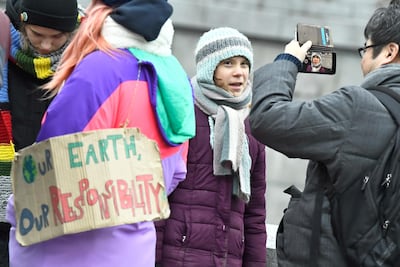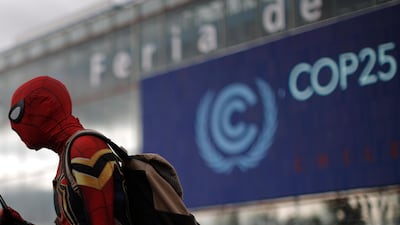There is a famous proverb in the Spider-Man comic book series that goes: "With great power comes great responsibility." Nothing could be more true when it comes to the massive hypnotic power that the superhero industry holds over us today. But whether we are consuming its films and merchandise responsibly is something we need to take more seriously.
The number of superhero movies has been on the rise year-on-year, with 2019 having had the most superhero movies yet. In fact, a superhero film last year became the highest-grossing movie in the form of Avengers: Endgame.
That is not all. This year, we are set to watch even more superhero movies, including the much-anticipated Wonder Woman 1984. We have also seen the growth of superhero television, including the acclaimed Watchmen that features Sister Night, a black woman, as its main character. This has gone hand-in-hand with the rise of comic conventions and merchandise sales. Where comic book superheroes were once the exclusive domain of nerds, they have now gone full mainstream, occupying a lion's share of our film and TV imagination.
Mythology is as old as humanity itself, featuring individuals with superhuman powers such as Hanuman, Gilgamesh and Perseus. But American comic book superheroes were born in the 1930s, in the aftermath of economic depression and to the backdrop of rising fascism.
Superman was the first – published in 1938 in Action Comics when Jerry Siegel and Joe Shuster, two Jewish-American immigrants, created an immigrant superhero for their new home. He was a pure and selfless being who fought the baddies in a climate of uncertainty, economic lawlessness and charlatans that came in the wake of the depression.
In 1939, Batman appeared, primarily as a response to Superman's commercial success. He operated in the darkness, delivering pre-emptive attacks designed to strike fear into the hearts of his enemies. Seen through the lens of current events, the idea of Batman's character – as the son of the wealthy elite operating outside of the law and wielding power according to his own moral code to bring down his opponents – looks like a much murkier proposition than the "good versus evil" paradigm within which our superheroes are usually framed.
In the war period, however, the moral certainty, escapism and optimism of the comic book superhero – a fictional place where good always triumphed, contrasting with a real world where fascism and death constantly loomed – led to the golden age of these characters, declining only in the 1950s.

Our current golden age of the superhero mirrors similar concerns of a world going wrong. In that sense, their renewed popularity seems prescient. Once again, we are hankering for moral certainty. World events seem overwhelming and all too often we are left feeling helpless, as though our actions are futile. Superhero movies allow us the optimism that in the darkness, good will triumph over evil and we can be saved from a world where all we see is impending doom.
However, gorging on fantasies of superheroes risks making us lazy about playing our own part. It also leaves us unable to deal with moral complexity.
Alan Moore, acclaimed comic writer and creator of Watchmen, once said: "The continuing popularity of these movies, to me, suggests some kind of deliberate, self-imposed state of emotional arrest, combined with a numbing condition of cultural stasis that can be witnessed in comics, movies, popular music and, indeed, right across the cultural spectrum."
Of course, there is plenty to learn from superheroes and only a killjoy would deny the delight they bring. Superhero stories help re-imagine the world, creating universes where the usual rules do not apply, offering an exploration of the alternatives that we could be.
But it seems to me that we have reached the peak of this superhero-loving trend – to the point where we are simply escaping and fantasising, and forgetting how to identify and support the heroes in our midst, let alone ensuring we ourselves become those heroes.
In films, it is easy to spot superheroes. But what does being a superhero in everyday life even mean? Giving to charity? Helping alleviate poverty? Stepping into a confrontation? Wearing a police uniform? Is Greta Thunberg hero of the climate change movement, or is she villain attacking our way of life? What about Kanye West, who famously thanked US President Donald Trump for making him "feel like Superman" whenever he wears a hat with the "Make America Great Again" tagline associated with Mr Trump's election campaign?
The difference between heroes and villains today is increasingly unclear, and different people even hold opposing views on the same subject. If the movie superheroes came into our world now, they would either be the bad guys operating outside the rule of law or they would be given such a hard time from the people they were helping that they would be hard-pressed to achieve their goals.
Furthermore, while it is fun to think that Superman or Wonder Woman might swoosh in and save us, it is important to understand that we are the ones who have the power to make real change. And with it therefore, we have got the responsibility to be our own superheroes.
Shelina Janmohamed is the author of Love in a Headscarf and Generation M: Young Muslims Changing the World


